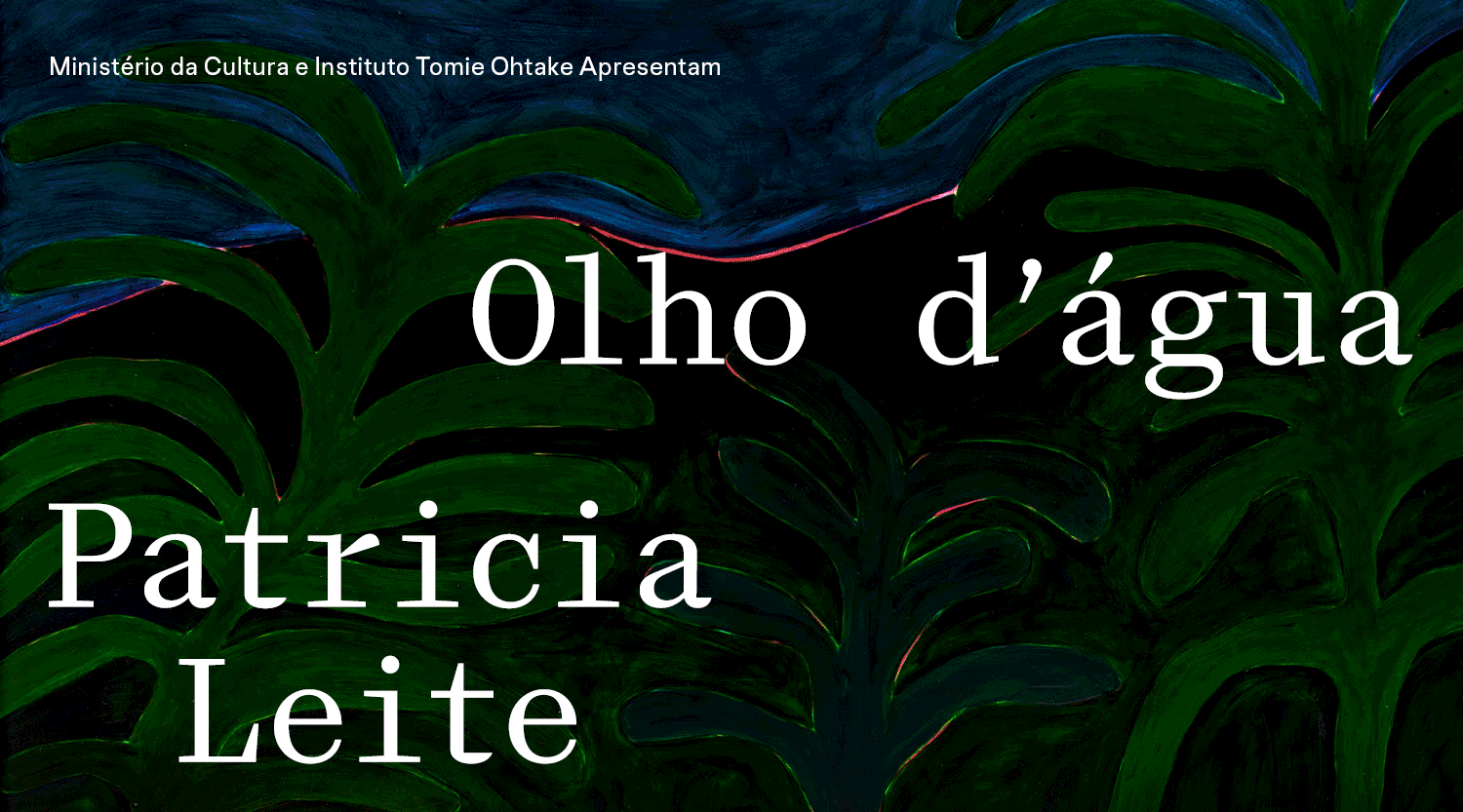Poema de Vladimir Nabokov sairá em julho nos EUA

Primeira tradução de “The University Poem” (O Poema da Universidade), em inglês, de Vladimir Nabokov (1899 – 1977), sairá em julho pela Editora Penguin.
Escrito em 1926 pelo autor de “Lolita” (1955), classificado na quarta posição na lista dos 100 melhores romances da Modern Library, o poema narra suas experiências no Trinity College, em Cambridge, entre 1919 e 1922.
Fazendo parte da coleção “Collected Poems”, a obra teve tradução para o inglês por seu filho Dmitri, que se dedicou a traduzir novelas, romances, poemas, cartas e diversos outros escritos do pai.
Leia tradução em inglês do Poema inédito de Vladimir Nabokov:
1
‘So then you’re Russian? It’s the first time
I have met a Russian …’
And the lively, delicately bulging
eyes examine me. ‘You take your tea
with lemon, I already know.
I also know that you have icons
where you live, and samovars.’
A pretty girl. A British glow
spreads across her tender skin.
She laughs, she speaks at a quick clip:
‘Frankly, our town is dullish,
though the river’s charming!
Do you row?’ Big girl,
with sloping shoulders, hands that are large,
bereft of rings.
2
Thus, at the vicar’s, over tea,
brand-new acquaintances, we chat,
and I endeavour to be droll.
In troubling, dulcet worry lost
at the legs that she has crossed
and at her vivid lips I peer,
then, once again, I quickly shift
my cheeky gaze. She, as expected,
has come with aunt, although the latter
is busy with her left-wing patter – ,
and, contradicting her, the vicar,
a timid man (large Adam’s apple),
with a brown-eyed, canine squint,
chokes upon a nervous cough.
3
Tea stronger than a Munich beer.
In the room the air is hazy.
In the hearth a flamelet lazy
gleams, like a butterfly on boulders.
I’ve overstayed – it’s time to go now …
I rise; a nod, and then another,
I say good-bye without hand-thrusting,
For so demands the local custom;
I hurry down a step, and out
into a February day.
Out of the heavens, without a lull,
descends a ceaseless, two-week flow.
Isn’t it true how very dull
an ancient student town can grow?
4
The houses – each more comely
than the next – whose ancient rosiness
gains cheer from bicycles reposing
near; the college gates by which
the bishop stands stonily inside his niche,
and higher, there is a black sun-like dial;
the fountains, hollow-sounding coolness,
the passageways, and then the barriers,
all iron roses with their thorns,
which, in the dark of early morn,
it is no easy task to climb;
and, right there, next door,
a tavern and an antique shop,
and beside a graveyard’s tombstones
a thriving market in the square.
5
There is meat in hunks all pink;
the shiny fishes’ uncooked stink;
and knives and pots; and also jackets
from wardrobes that shall remain nameless;
and, separate, in strange positions,
some crooked stands where they sold books
freeze motionless, as if concealing
some arcane alchemistic treatise;
one time I happened through this rubbish
to rummage, on a winter day,
when, adding to an exile’s sadness,
it snowed, as in a Russian town –
I found some works by Pushkin, and
some Dahl upon a magic counter.
6
Behind this square’s uneven outlines
there is a cinema, and thither
into the foggy depths we wandered,
where steeds midst swirls of dust rushed past
across the canvas screen of light,
the viewer magically alarming,
where, with a kiss’s silhouette,
all ended at the proper time;
where tragedy was always sprinkled
with a beneficial lesson;
where droll and touching Charlie Chaplin
came mincing with his toes thrust out,
where, now and then, we chanced to yawn.
7
And, once again, the crooked alleys,
the gigantic age-old gates –
right in the centre of the town,
a barber shop where they shaved Newton,
in ancient mystery enveloped,
the tavern known as the Blue Bull.
There, beyond the stream, the houses,
the century-old turf tramped down
into a dark-green, even carpet
to suit the needs of human games,
the wood-like sound of soccer kicks
in the cold air. Such was the world
where I from Russian clouds was hurled.
8
In the morning, out of bed I’d hop,
and to a lecture rush
with whistling cape; at last a hush
over the chilly amphitheatre fell
as the professor of anatomy
mounted the podium, a sage
with vacant, childlike eyes;
with varicoloured chalk
a Japanese design he’d trace
of intertwined blood vessels, or
the human skull, and on the way
a naughty joke he might let fly –
stamping of feet was our reply.
9
Supper. The regal dining hall
graced by the likeness of Henry the Eighth –
those tight-sheathed calves, that beard –
all by the sumptuous Holbein limned;
inside that singularly towering hall
that choir lofts made appear so tall,
it was perpetually murky
despite the violet conflagration,
that filtered through the colour panes.
The naked benches stretched along
the naked tables; there we sat,
in the black cowls of brothers’ capes,
and ate the over-seasoned soups
made out of pallid vegetables.
10
I lived within an antique chamber,
but, inside its desert silence,
I hardly savoured the shades’ presence.
Clutching his bear from Muscovy,
esteemed the boxer’s fate,
of Italic beauty dreaming
lame Byron passed his student days.
I remembered his distress –
his swim across the Hellespont
to lose some weight.
But I have cooled toward his creations …
so do forgive my unromantic side –
to me the marble roses of a Keats
have more charm than all those stagey storms.
11
But to think of poetry was harmful
in those years. To twist a screw of brass,
so that, in the water’s droplets,
the world would radiantly appear
minute – that is what occupied my day.
I’m fond of the serene alignment
of green laboratory lamps,
the motley of the complex tables,
the magic gleam of instruments.
And from descending all day long
into the microscope’s dark well
you did not hinder me at all.
O languorous Calliope,
the bane of uncompleted verse.
12
Instead, there was a new distraction:
something in my memory flashing,
as if unfocussed, and then clearer,
only to vanish once again.
Then I became abruptly bored
by work with needle and with screw,
observing the shimmer in the pattern,
of monotonous infusoria,
unravelling the bowels of a grass snake.
No longer did the lab seem heaven;
I started to imagine how, at the vicar’s,
she and I would meet once more.
13
There! Now it’s in focus. Now I see clearly.
It’s there, the satiny-chestnut iridescent glimmer
of her coiffure, those somewhat crudely
pencilled lips; those lips like bright-red wax
with minute fissures. Eyes half-closed
against the smoke, she finishes her cigarette
and, narrowing them, into the ashtray
the golden filter pokes … Soon the smoke will scatter,
her lashes will begin to flutter,
her sparkling eyes will glance intensely.
I’ll be the first to lower my gaze.
14
Her name was not very becoming
(especially the British ‘Violet’
to us was not pronounceable).
Quite unlike the flower, her eyes
blazed to the point of ugliness,
and on everything, with joy, intensely,
her humid gaze would long stay fixed,
her pupils curiously dilated …
Her speech, however, light and rapid,
was not consistent with her gaze,
and I myself could not decide
which I should trust – the vacuous chatter
or the grandiloquence of those eyes …
15
I knew, though, that her fullest blossom
Violet had achieved that year,
for how could she, a British girl,
enjoy her new-found liberty?
But three scant years remained
and she’d be thirty, all of thirty …
All those routine infatuations
And all had come and gone like shadows –
Jim, the soccer star, had vanished,
And Joe, the pensive one, and John,
of calculus the gloomy hero …
She flirted and procrastinated,
toyed superficially with love,
but in her heart awaited more.
16
Inevitably comes the day;
He’s leaving, the ethereal friend:
the bill is paid, exams are done with,
the tennis racket in its frame,
and now the shiny locks click shut
on the suitcase filled to bursting.
He’s leaving. From the anteroom
the luggage is brought out.
Some final clatter and the car moves off.
She gazes out into the dust:
oh, well – so be it. Once again
the phantom of the bridal veil
had in her dreams appeared in vain …
An empty alley, and, far off,
The grinding of the shifting gears …
17
From despicable influenza,
her father, a respected judge,
on Port an expert, and a joker,
had died not long ago, and
Violet resided with her aunt.
This lady was of the kind
of learned booby that abounds in England –
unlike her brother, thin and haughty,
she always used a walking stick,
she delivered lectures to the workers,
she revered culture’s ideal
and considered – inter al.–
Kharkov a Russian general.
18
With her, Violet did not argue –
at times she might, but felt lethargic –
she lived in beneficial quiet,
she was ill-versed in worldly matters,
recalling ever less her father,
her mother she’d forget (while I
by albums was informed about her –
about the times of wasp-waist dresses,
of horizontal boater hats.
The final snapshot: on a bench
she sat, and, down her lengthy skirt,
the shadows flowed onto the sand,
her necklet modest, pure her gaze,
a croquet mallet in her hand).
19
I was invited twice or thrice
to their hospitable house,
and at the theatre quite by chance,
Violet turned up next to me
(the students were performing Hamlet
and heaven was out of joint for
the bard’s illustrious shade).
More often we would meet
in the vociferous evening street
when the horde of vendors seethes,
gutturally the news intoning.
That’s the hour when she would walk.
Two words, a superficial joke,
the splendour of those sombre eyes.
20
And then, one time – I recall clearly –,
in early March, in rainy weather,
it happened that the two of us
went to a soccer game together.
And, gradually, the crowd increased;
someone would crush my foot
or shove my shoulder; ever tighter
grew the many-headed roiling.
I entered into an unspoken resolution;
as soon as one goal shook the stands,
I would caress my Violet’s hand.
Meanwhile in athletic shorts,
and in their motley jerseys clad,
the opposing players advanced.
21
Your average fan: under his cap
a squeamish lip and a strong whiff
of Virginia smoke. But now,
his lips unclench, his pipe’s withdrawn;
another minute, mouth’s agape;
another and he is howling. Hands
by the hundreds victory inciting:
an artful player propels the ball,
darts like a swallow the field’s full length,
two men rush him, he swerves, he breaks through –
neat piece of work – and, on the run,
nets the tanned ball from afar
with a shot from his well-practiced toe.
22
I cautiously my hand extended
with faith in my internal pounding
that was repeating to me, ‘touch …’
I touched. I was preparing even
to lean across, to whisper … She, though,
her tepid, unresponsive hand
disengaged without a word;
only then rang out her mirthful,
habitual voice, her merry laugh:
‘Look – he plays worse than all the rest,
keeps falling all the time, poor chap …’
It was drizzling just a bit;
we were returning by the gully
where the black foliage decayed.
23
Home. Its pediments adorned
by coats of arms, the massive hall,
green glimpses of internal courts.
Silence reigned there. There, in the sombre
dining hall (described above)
dwelt a staff of wizened waiters.
A sharp-eyed porter watched the gates.
There existed for the cleaning
of the obscure student lairs,
ever since immemorial times,
a diminutive breed of crones;
one of them would call on me
to brush the dust atop the dresser
and the shelves upon the wall.
24
And to forsake this final image
is hard for me. My memory
conserves her mouselike little steps,
her comical, funereal cap –
such as the one that was, perhaps,
worn by her grandma – the fine hairs
along her chin … Each morning, early,
amid the yellow-tinted fog,
without a sound, all dressed in black,
she would arrive, bringing the kindling,
and, like a rag doll, stoop in front
of the gelid morning hearth.
She’ll spread the coke with practiced hand,
and, from below, scratch up a flame.
25
And this image is so troubling,
so bothersome to me … Perhaps,
in her dad’s tobacco shop,
back in Queen Victoria’s day,
her rosy girlishness had troubled
the hearts enclosed in chequered waistcoats –
the hearts of lanky students …
When there resounds in darkened elms,
the nightingale’s sweet sound,
she would encounter one like me,
who with this spirited young girl
would snap the Persian lilac branches;
and to her bared and tilted neck
his impassioned lips would press.
26
Imagination rushes onward:
night, bedside table, lamp … sleep comes not
to the sick old man … immobile,
he hearkens to the night-time whisper:
an experiment of vital import
has started in the lab … no strength left …
She comes when classes are to start,
She gathers up last midnight’s clutter –
burnt cigarettes, a rusted pen nib;
she’ll bring a pail out from the bedroom.
The professor’s old. The time approaches
when he will die; he’s long forgotten
the fragrance of tobaccos that
he smoked in Queen Victoria’s days.
27
She’s gone. Soundlessly the door has closed …
the blazing coals. Evening. Ennui …
and, deafened by the silence, I,
with my cake in raisins’ birthmarks,
drink tea with gloomy far niente.
In the hearth, all tame and tender,
the fire’s erect on its hind paws,
and the heat’s rough-textured odour
of faded furniture is more intense
within my ancient little room.
To dig out with the red hot poker
concavities in hissing walls,
to play a solitary game of chequers,
to read, to write – what should I do?
28
Setting aside the dock-tailed teapot,
I take my faithful dictionary –
and with my muse, that wilted lady,
read in oppressive lassitude,
and locate in the final volume,
between ‘free-loader’ and ‘hypocrite’,
‘despondence: melancholy, dejection, ennui;
spleen, hypochondria’.
and yet I will compose my poem …
Thus, for an hour or two, facing the fire,
I sit, I fit together rhymes,
having forgotten Violet –
and lo, like music from the heavens,
there peals the modulation of evening bells.
29
With opened window, to the bells
I hearken: for the night, the earth
is crossed by sacred quarter-notes,
on the far tower the hours resound,
the tower keeps count and then, more mournful,
another from afar responds.
Upon the buildings growing weighty,
the mantle of silence casts its folds. I hearken –
all has grown still. And my soul
to the stillness grows accustomed –
when suddenly, with thunderous guffaw,
swells up a motorcycle’s gale
along the lifeless alleyways!
30
Since then my soul has lived more amply:
I understood in those years but a sampling
of earthly noises to the Lord is equal;
in that townlet in the towers’ shadow
the sound of life was reckless clatter,
the mixture of tipsy antiquity
and of the present liveliness
were healthful for me: my soul’s ready
to relish everything beneath the moon,
the ancient and the new.
But I am in disaccord with the moon’s glow,
I try to avoid melancholy …
Oh keep me, Lord, from being a poet,
the earthly foolishly to miss!
31
No! I, with book and sleepy armchair
before a fireplace aglow,
did not let by, in useless sadness,
the charming entrance of the springtime.
I’ve had enough of coals and logs
stuck in the fireplace – till October.
Now the heavens are opened wide,
here, now, is the first lustrous crocus
that, like a mushroom, pierces grass,
and tomorrow, without copious tears,
without a lusty refrain,
she’ll come and make herself at home –
a perfectly well-mannered girl,
quite unlike the Russian spring.
32
And now it’s here. More limpid, higher
the chimes resound, and in his niche
the stony bishop leases out apartments
to the swallows. The hollow
honking in the alley’s arch resounds
as sundry vehicles scuttle to and fro.
The fountain chirps, the barrier blooms.
Lawn tennis – that white pastime – replaces
boisterous soccer: in flannel trousers, the whole world
is off to play. Just then, the final
course was ending – the ultimate impasse,
and with Violet I would meet
and my Violet I would kiss.
33
Like the first time, she shied away
in my embrace – seemed horrified,
propped arms against my shoulders,
and how insane and mournful
looked her eyes! And this was neither
in amazement nor in anger,
nor was it stylised girlish fright …
I failed to understand … I do
recall the evenly and modishly
shorn garden, six white balls,
a row of massive rhododendron bushes;
a fiery player, I recollect
a court of firm-packed greensward, lined
with white and traversed by a net.
34
Her game was lazy – therefore, bad –
she played; she did not fly, chamois-like,
with the fleet foot of Lenglen.
Oh, I confess, my friends, I love
the stroke resilient at full tilt,
the goddess in a knee-length dress!
To toss the ball, to arch my back,
unwind like lightning,
with the stringed surface, from the shoulder
to skim the ball’s occiput,
and, lunging, the whistling return
to devastatingly cut short –
the world has not a sweeter pastime …
in heaven we shall be playing ball.
35
A house of bricks stood by the stream:
ivy and the usual wisteria
entwined the wall betwixt the windows.
But, other than the plushy parlour,
where I remember three tableaux –
one of Mary by the Cross,
another, a huntsman in a red frock coat,
the third a group of sleeping dogs –
I saw none of the other rooms.
The fireplace, the bronze candlestick,
I guess I should also mention,
the pianola, too, beneath its cover,
and inadvertent feet that meshed
under the dainty teatime table.
36
She grew submissive very quickly …
For my part, I felt no reproach
in her obedience. The spring
changed imperceptibly to summer.
Through fields with Violet I amble:
sometimes the depths of a black cloud
would be encrimsoned by a sunset –
for Russia I so strongly yearned,
a nauseating heat would scald my soul,
especially when a mosquito
would whine above my ear in silent
evening hours, and my chest aches
from the aroma of bird cherry.
Enough, I will return one day.
37
Upon such days, with such-like sloth
who wants to study? And yet, alas,
exams impend, like it or not.
I guess we’ll have to work a little …
The book, however, seems stale bread,
it’s dry, it’s stiff, I can’t bite through.
We’ve overcome much more than that …
And now I spin in bacchanalias
of terms and systems’ orgies,
and I remember midst all that
what a boat my friendly boatman
had promised me the previous day –
and all the unfinished volumes
slam shut and on their shelf. It’s time!
38
Toward the festive, teeming river,
here and there the emerald sliver
of a geometric lawn descends,
or overhead an archway bends:
the waterway beneath is narrow
darkness, mould: into the turbid water
from both sides the Gothic walls ingrown.
Like otherworldly gobelins
the chestnuts bloom above the bridge,
and ivy on the centuries-old stone
crowds its ace-of-spades designs
and, further, like a narrow stripe,
the river winds past walls and towers
with a Venetian idleness.
39
There were the floats, pirogues, canoes;
yonder a gramophone, nearby
a vivid parasol, and petals
into the green-tinted water falling.
Love, drowsiness, the human crowd,
and through the antiquated bridges,
traversing the coolness of their ovals,
like some dream, both glossy and fatigued,
all of this slowly trickles past,
and iridesces, till, abducted
by a recondite meander
into a dense backwater of bird cherry
without reflection, without sound,
two beings ’neath an alder float.
40
Some wine, cold cutlets and some cushions,
Violet’s patter, her softly breathing languorous breast,
encircled by a silken shawl;
her face, untouched by rouge,
was flaming. The pink chestnut tree
bloomed high above the alder forest.
The breeze was playing with the rushes,
rummaged through the boat, barely ruffled
a humorous review;
then on her palpitating neck
and the dimple of her clavicle
I kissed her, laughing.
I look: upon the colourful cushion
she pensively reclines.
41
She turns a page of the review,
and seemingly her gaze has stopped.
But that gaze was wearisome and dusky:
She did not see the printed page …
Abruptly, from beneath a throbbing eyelash,
emerged as from a chrysalis a bright ray
and down her ruddy-swarthy cheek,
glistening, a round diamond rolled …
‘What is it, what,
please tell me?’ Her shoulder
shrugged and heedlessly she wiped
the gleaming of that speechless tear,
with soundless laughter her throat swelled:
‘I myself don’t know, my dear one …’
42
The time ticked on. The sunset fog
descended. Far in the distance, indistinctly
in a pasture a horn sang. The world assumed
a crepuscular and misty cast. And in the coloured lamellate small lantern
I light a candle, and quietly we sail
into the mist – was it not you,
Ophelia, or was it just the needle of a gramophone?
Within the mist an indefinable sound draws ever closer,
And, splashing a bit,
the shadow of a boat moves past,
a droplet of the flame glows red.
43
And perhaps it is not Violet –
But another, and in a different summer,
who on another night floats by my side …
you’re here, and there was no parting,
you’re here, and with extended hands
in the vague nocturnal silence,
you are in love with me again,
with you, amid the mirage riparian,
my happiness at last I’ve reached,
thank heaven, though, that very instant,
the rush of forbidden reverie
the sound of British speech cuts off:
‘There’s the landing, sweetheart, careful.’
I backed the oars and touched the shore.
44
There on the bench we sat a while …
‘Oh, my Violet, don’t tell me
that it’s bedtime for you?’
And sparkling with her enlarged eyes,
she answers me: ‘Judge for yourself, –
it’s eleven o’clock,’ – and, rising,
she offers me a last embrace.
And she adjusts her hairdo.
‘I’ll walk the final bit alone.
So long.’ She’s chilly once again,
and baleful, upset by something, –
hard to make out … I’m happy, though …
Lightly I am wafted by
the rapture of nocturnal being.
45
Homeward I walked, inebriated
in the tight embrace of charming alleys –
and my soul was so chock-full
and such a paucity of words!
Around – a dearth of sounds, of beings,
and, one would presume, a moon,
and spots of light on the smooth pavement,
that with my rubber heel I’d squash –
I walked and sang ‘Alla verdy’,
not sensing my approaching doom …
Ominously, gloomily,
from underneath an unseen gate,
suddenly there loomed the figures
of three most unseemly chaps.
46
Their chieftain – our most dogged mentor:
deportment, cape and the black
square (kerchief) covering his head –
his whole mien – severe reproach.
Two toughs – his faithful bulldogs –
stood flanking him and watching me.
They resembled two detectives,
but also two torch-bearing linkmen:
stocky, jowly, dressed in tailcoats
and top hats. And in the dim light
their quarry turned to flight.
The dark would hardly mean salvation.
Such fierce endurance they conceal and speed.
47
I stealthily the fiend evaded …
Alas, I was attired for sport,
while night-time dress demanded, here
(see such-and-such clause of the rules),
that caps be worn. Another minute
all three of them would close on me,
the middle one’s gaze would meet my gaze,
he’d ask my name, then write it down, –
as he pronounced a civil ‘thank you’;
and tomorrow there would be a reprimand and fine.
I froze. A whitish light was falling
on their indifferent features.
They moved in closer … and here I took,
as they say, to my heels.
48
The moon … The chase … The mad nightmare …
I run, I shun in silence:
then, either a top-hatted phantom
lunges or darkness threatens with its cloak,
or something like a hand
in a black glove … miss me, miss me …
and all is overwhelmed by moonlight,
all is distorted …
with a hurried jump
I ended my inglorious flight,
crawled into my college courtyard,
where no gliding angel passes,
and no wily demon.
49
I’ve become winded … My heart’s beating …
The night oppresses me, listlessly flowing …
Into the coolness of my sheets
I slip when it’s already dawning,
and in my dream I see you, Violet,
I hear you ask, ‘Throw the cloak on …
No, no, not that one – it’s too narrow …’
I dream that we converse in Russian,
and, in the dream, it’s the familiar
form that we speak in, and I dream
you’ve brought some wood chips …
You break them, put them in the hearth …
Creep up, creep up, reluctant flamelet,
or will you disappear in smoke?
50
I got up late, slept through my classes …
The little crone cleaned my clothes –
the buttons knocked beneath her brush.
I dressed, and had a little smoke,
yawned to the Unicorn for lunch.
And suddenly there’s Johnson at the door!
We had not met for half a year –
since he had taken his exam –
‘Hello! I never thought I’d see you.’
‘It’s not for long, on Saturday I’m off,
I only need to grab some junk –
my last assignments to submit
where the local sages sit.’
51
We took a table. Appetisers,
small talk – a Russian’s craving for caviar,
followed by the trout’s blue curve, and talk
about who was now tennis champ,
then a rather silly argument
about the strike, and an airy cake.
Whereupon, having finished off
a bottle of amiable Graves,
then on the seductive Asti
we assiduously went to work –
about the emptiness of heart-throbs
vacuous discussions followed.
52
‘– Love …’ – and he gave a prolonged sigh:
‘I loved once, too … Whom – it’s no matter;
as soon as springtime dwindled,
I noticed that something was wrong;
my imagination cooled
and I lost my warmth toward her.’
He gave my glass a mournful clink
then he went on: ‘It was awful …
you lean close to her, for instance,
and your wandering eye like Gulliver’s
will see the giant furrows and the bumps
on what was once attractive to you,
and what you find repulsive since.’
53
Then he fell silent. We went out
together from the club. To be sincere,
I was a little high,
and felt like going home. The sun was hot.
Trees sparkled. Silently we paced,
When suddenly my gloomy partner –
on Holy Ghost Street –
squeezing my elbow, dryly uttered:
‘I was just telling you … and look,
as chance would have it, here she is …’
and there was Violet, coming toward us,
gorgeous, happy, in a stream of sunlight.
She smiled at us, and off she went.
54
With a strange sense of irritation,
no longer tipsy, salutations
were exchanged with my chance partner,
I squandered a few hours, and – basta –
went to work – as I had seldom
worked, whole days, with bristling hair, I’d sink
into my studies, and not think
of leaving Violet, till, at last
(just like an oarsman straining with
approaching finish line in sight),
I crammed with textbooks through the night,
with ice against my brow pressed tight.
55
And it began. Exams went on
for five hot days. The torrid
sun so oppressively heated the hall
that someone fainted, and my neighbour
on the right a fit of sleeping sickness feigned
to conceal a failing mark.
And so it ended. Alma Mater
bestowed on each survivor’s
brow a parting peck;
I gathered books and microscope, –
and suddenly I thought of Violet,
and that was when I thought with wonder
how the mysterious sequence
of centuries divided us.
56
And I, a liberated idler now,
with my free and hungry soul
went soaring off to other shores,
to a familiar port, where in an office
the indifferent sea recruits
simple hoboes such as me.
I have already squandered all my riches:
the well-known abbey’s portrait
in two copies is all I have left.
And on the final night,
upon our lawn, amid
a Venetian court’s habitual ball,
we undulated until dawn.
57
A gallery surrounds the court.
In the blue murk blushing pink,
garlands of lanterns glow –
Aeolus’s airy swings.
Now the musicians join the fray,
five furiously moving shades
in a crimson shell of light.
And yet, amid all this, where’s Violet?
I see her suddenly, standing
illumined by a lantern’s glow,
between two columns, as on a stage,
something was drawing to a close …
Perhaps this dress with its black spangles
was not becoming to her?
58
Unperturbed by contact with her,
I cling to her as we start dancing;
she’s silent and severe of bearing,
her immobile face asparkle.
And her resilient leg responds
to the pressure of my leg.
Obedient to the banging and the wailing,
the couples tread upon the lawn,
serpentines from every side,
and then the sax carries the tune,
now the drumsticks, then the rattles,
the exclamations of the cymbals,
first a long step, then a short one,
and night marvels at the ball.
59
A living soul yields not to fashion,
but, now and then, for freedom, passion
will coincide with its dictates …
I like the fox trot, forthright, gentle …
Some philosophiser, surely,
will find in it our epoch’s symptoms,
debauchery to bedlam’s music;
some literary lady or
dime-a-dozen poetaster
will bemoan the dances of the past;
but for my part, I’ll say frankly,
I find no special charm at the sight of a boorish and unwashed
marquess dancing a minuet.
60
The band dies down. Beneath a colonnade
we walk …
Between one swallow and another
of lemonade she pattered then we sat down on the steps.
I look and see our comic shadows.
Our shadows touch: ‘I’m off tomorrow, Violet.’
And uttering this was so simple …
Raising an eyebrow, she smiled at me …
a limpid smile: ‘After a ball
it’s easy to oversleep all trains.’
And the music moaned anew,
and we were dancing once again.
61
Oh cease, oh cease, my farewell ball!
While the festive wind lets drop
the coloured ribbons on the sward and orange peels –
somewhere in her den
my little crone must be asleep – her sleep is peaceful.
Dapples of moonlight cling to her, her
dress lies like a black smudge on the chair,
her cap is like a black smudge on its hook;
the alarm clock with a sparkle ’neath its dome
assiduously ticks; under the cupboard a mouse
shuffles, darts away, and, in the stillness,
midst a serene snoring the pauper’s night expires.
62
My little crone, at midday exactly,
will see me off. Lovingly, I screwed my racket
into its frame, knelt on my suitcase, snapped it shut.
Along the corners and the walls I let my soul and my gaze roam:
Yes, it’s all packed … Farewell, my lair!
My little crone is at the door …
The thunderous motor’s rumble – the wheels move off …
Oh well, another one is gone … A fresh one
will move in, come October – and the talk
will be the same, with the same rubbish on the rug …
63
And that is all. Farewell, dear sounds,
farewell, fair muse.
Before our parting I ask only one thing:
as you fly, swallowlike, now lower,
now on high, find one plain word within this world,
always swift to understand you,
where moth and rust do not corrupt,
cherishing each instant,
blessing each motion,
do not allow it to freeze still,
perceive the delicate rotation
of the slightly tilted earth.










